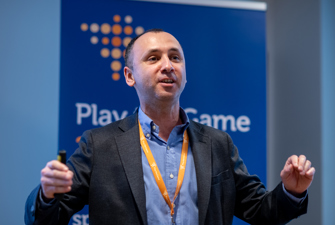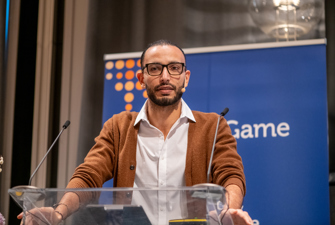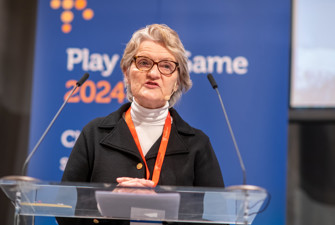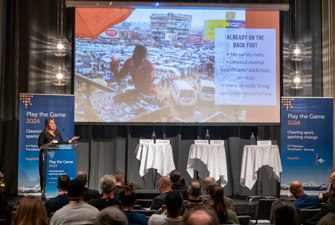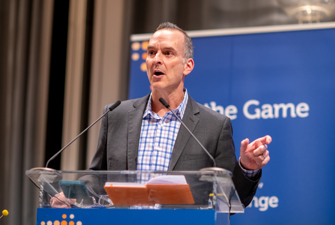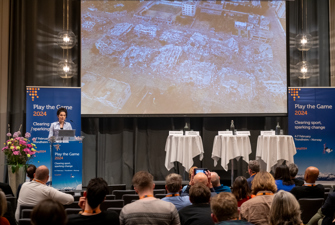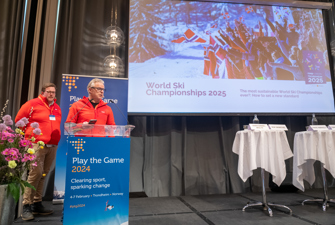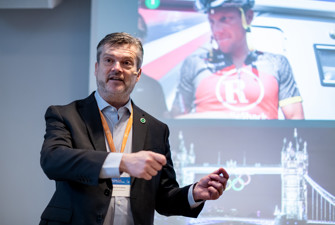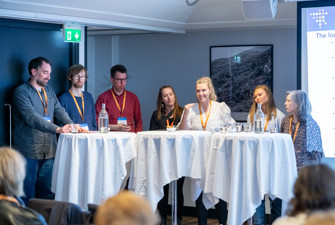Investigative sports journalism is struggling on many fronts at the same time
A debate at Play the Game 2024 about investigative sports journalism painted a grim picture of the future: Funds are gone, journalists prefer a comfortable life, and sports organisations refuse to cooperate with the media. Yet, readers will reward investigative sports reporting with clicks, a veteran reporter said.
Anyone can be a journalist, Play the Game’s 2024 conference was told. Anyone can publish their work on the Internet. But traditional investigative journalism is in crisis and that goes for investigative sports journalism too.
Slick PR and the decline of the traditional press conferences shield officials from accountability. Social media takes up more of our time, AI-generated content is increasing, and print media is in near-terminal decline. Plummeting advertising revenues means that few resources are available to fund investigations that may or may not result in a story.
“Big tech has now taken most of the revenue from advertising and has also taken over much of our attention,” said Danish Journalists’ Union president Tine Johansen.
“There is a surplus of content out there. Anyone can publish anything. AI is to the media what doping is to sport. It’s hard to see what the truth is and what is artificial. Authorities are turning against the media and its representatives. The messenger is being shot.”
“The good news is that journalism is still alive and kicking, and it will find a way,” Johansen said. “But there is a big financing problem. And it is also a problem if the wrong people are doing the financing.”
Readers reward investigative stories with clicks
Meanwhile, Sunday Times sports journalist David Walsh pointed to some of the positive opportunities presented by online media.
“Digital is a whole new world. Now our stories are online, our bosses can see exactly how many people read them and how long they spend reading them. And the stories that attract the most readers are the most controversial. Not columns that are very opinionated, but investigations that are very detailed," he said.
" If I ever do a story that takes two, three or four week’s work, I know that’s the story that our readers want. These stories are the ones that we now know will have an impact.”
“People who want to do investigative journalism are in a better place today in my eyes,” he said.
“Of course, there are difficulties but there is enough corruption out there to keep us all going.”
Some journalists prefer to stay in the comfort zone
Swedish TV4 sports journalist Olof Lundh agreed that “really good investigative pieces” will receive plenty of clicks. However, he also stated that many of today’s journalists prefer to remain in a comfort zone.
“There are some stories that we are all expected to cover and others that are mostly ignored,” he said.
“Women’s football has seen huge growth, but in Sweden we have several clubs that have gone broke. We do not cover such problems because we are too busy talking about the successes of women’s football. It is not always a success story. Sometimes you need to go in a different direction.”
Similar issues exist in the men’s game, Lundh added.
“We have seen a lot of fans fighting at stadiums, but the journalists don’t want to write about that because they know the fans will go after them on social media” he said. “If you write about the subjects the fans want, they will applaud you.”
“Sometimes we need to write about stories that we do not really want to write about,” he said. “Things that are not that comfortable.”
A glimpse from the trenches
Norwegian investigative sports journalist Andreas Selliaas provided a glimpse from the not-so-comfortable trenches of sports journalism when he described his recent visit to Qatar and Saudi Arabia to scrutinize the legacy of the 2022 World Cup and its lessons for the future.
His team was followed when they tried to view an empty stadium site, while their efforts to interview jailed and unpaid workers were unsuccessful.
Attending the Club World Cup in Saudi Arabia, Selliaas and his colleagues were standing just metres from FIFA president Gianni Infantino and Patrice Motsepe, the president of the African Football Confederation.
However, FIFA’s communications staff did not permit them to ask any questions. Instead, they were told to put their queries in an email. FIFA’s brief reply simply referred to existing rules and previous statements.
